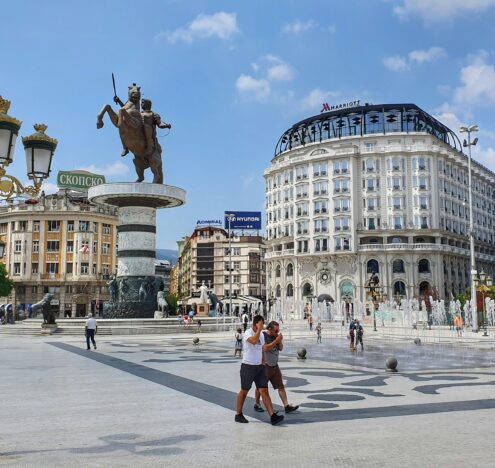This analysis was featured in Critical State, a weekly newsletter from Inkstick Media and The World. Subscribe here.
Wherever disaster strikes, it risks becoming a political crisis. This is partly because natural disasters are shaped and exacerbated by the policy choices of the government in place before the disaster. But it is also because the specific form and scope of a disaster can change or exacerbate the means and motivations of groups predisposed to resistance. In countries where armed resistance to the central government predates the disaster, the disaster can break the viability of armed groups. Or, it can spur more of the dispossessed and disaffected to join their ranks.
In “When Disasters Hit Civil Wars: Natural Resource Exploitation and Rebel Group Resilience,” authors Yasutaka Tominaga and Chia-yi Lee look at the variation in rebel survival after disaster, and find an explanation directly linked to how those groups sustained themselves before catastrophe.
One of the reasons to look at rebel group relationships to resources is that it can offer clarity in otherwise confounding situations. The authors specifically highlight how rebel groups in the same country and subject to the same disaster can respond differently, noting that “after the 2012 typhoon in the Philippines, the Moro Islamic Liberation Front cooperated with the government during relief operations but the NPA remained hostile to the government.”
While disaster impacts the production of resources, not all rebel groups derive funding in the same way. For example, groups which smuggle resources are more resilient than those that tax or control directly.
Rebel groups can often sustain themselves beyond the reaches of state power and repression by guarding, collecting, controlling, and selling natural resources, everything from oil to diamond mines to opium fields. These resources are not evenly distributed, and access to them can and often does change drastically after a disaster. A mine might collapse, oil derricks may break, and crops could be washed away.
While disaster impacts the production of resources, not all rebel groups derive funding in the same way. The authors find that groups which smuggle resources are more resilient than those that tax or control directly. Direct control of resource extraction lends itself to a fixed territory and hierarchical structure, whereas transporting resources across a wider area leaves smugglers less hierarchical, more resilient, and able to take advantage of price shocks after production collapses in disaster.
The disaster itself is a disruption to production, but so is the intrusion of the state into rebel-contested areas, as both military and relief operations can reassert control and rebind captive populations to the central government.
“Relying on stable resource exploitation strategies such as extortion puts rebels at risk when unexpected shocks occur, as their single and steady source of funding can be easily disrupted,” the authors write. “Rebel groups that earn money from ad-hoc strategies of resource exploitation such as smuggling are more robust in the face of natural disasters.”
Resilience in the face of disaster is often seen as a civil task, one focused on the general benefit of people after tragedy. This time is also a moment of political reformation, especially in light of ongoing conflicts with armed groups. Understanding what makes armed groups vulnerable, and what makes them resilient, can help governments respond to crises. Given a warming planet and increasing disruption to patterns of life, knowing the shape of rebel movements to come can help states preempt them before a crisis.




















